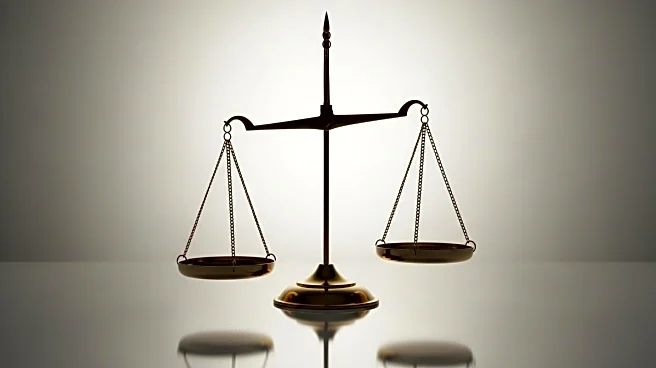What's Happening?
The article discusses the importance of moderation and civility in political discourse, highlighting the virtues of these principles in fostering constructive dialogue and cooperation. It references historical examples, such as the respectful treatment of Confederate General Robert E. Lee by Union soldiers, to illustrate the value of civility. The piece critiques the current political climate, where extremism and divisive rhetoric are prevalent, and emphasizes the need for leaders to embrace moderation and civility as a means to achieve effective governance.
Why It's Important?
Moderation and civility are crucial for maintaining a functional and respectful political environment. In the U.S., where political polarization is increasingly evident, these virtues can help bridge divides and foster bipartisan cooperation. The article suggests that civility movements, like those in Minnesota, can positively influence political leaders and constituents, promoting a more harmonious society. By prioritizing these values, political leaders can enhance their credibility and effectiveness, potentially leading to more stable and productive governance.
What's Next?
Efforts to promote civility and moderation in politics may continue to gain traction, with initiatives like the Disagree Better campaign encouraging constructive dialogue. Political leaders may face pressure to adopt these principles, especially as evidence suggests that voters respond favorably to bipartisan cooperation. The ongoing challenge will be balancing the mandate for civility with the need to address truth and accountability in political discourse.
Beyond the Headlines
The emphasis on civility and moderation raises questions about the ethical responsibilities of political leaders and the media in shaping public discourse. It highlights the potential for these virtues to be weaponized or misused, underscoring the importance of genuine commitment to these principles. The article also touches on the broader cultural implications, suggesting that civility can influence societal norms and values.









